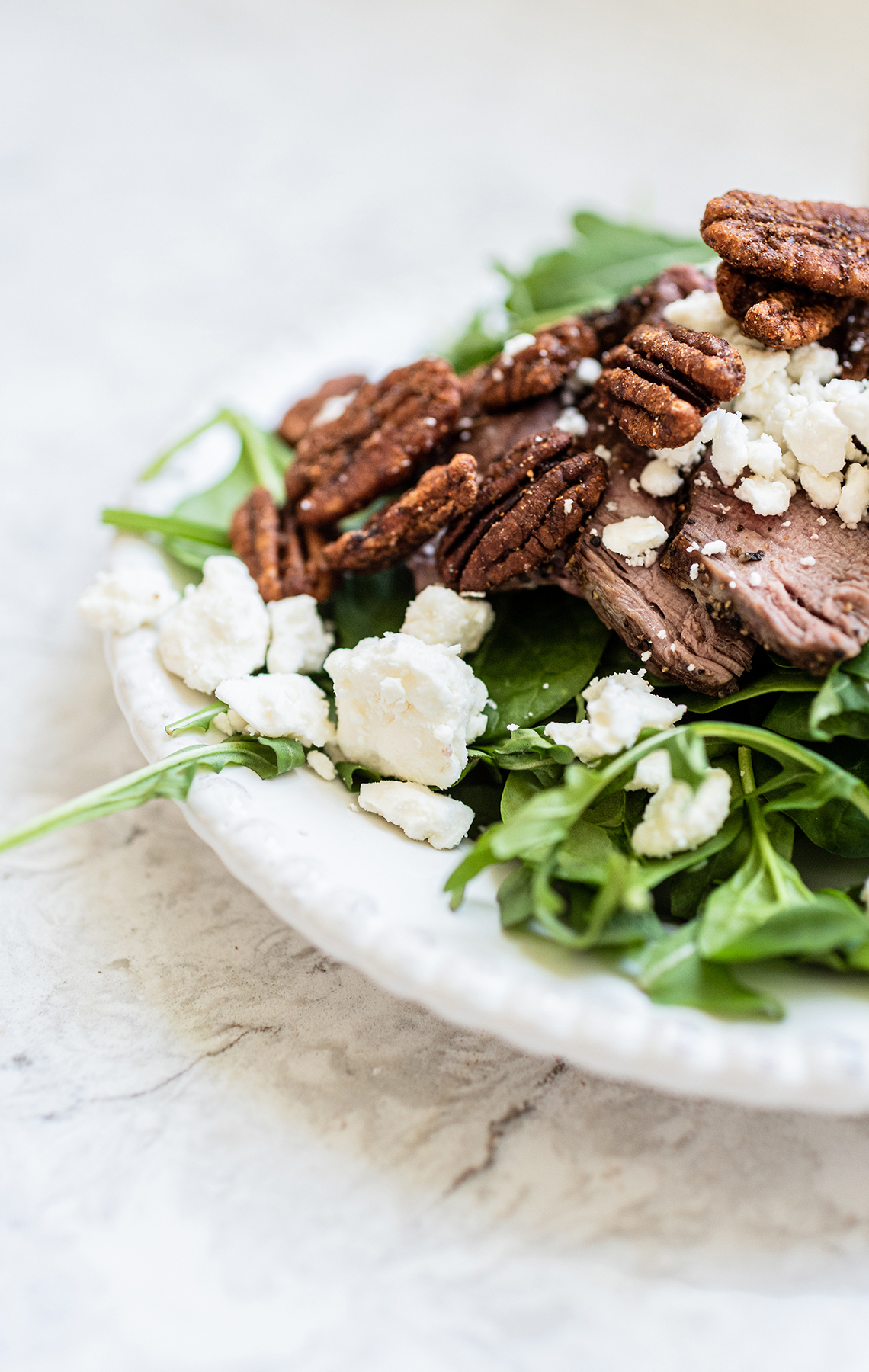
What It Is
The MIND diet (Mediterranean-DASH Intervention for Neurodegenerative Delay) is a hybrid diet that combines the Mediterranean and DASH diets, specifically designed to protect brain health and reduce dementia risk. It takes the best brain-protective foods from both parent diets and specifies exact amounts for optimal cognitive benefits.
The 10 Brain-Healthy Food Groups to EMPHASIZE
Daily Foods:
- Green Leafy Vegetables (at least 6+ servings/week, ideally 1+ daily)
- Kale, spinach, arugula, collard greens, Swiss chard, romaine lettuce, mustard greens, turnip greens, dandelion greens
- Green leafy vegetables are the most beneficial food – brain tissue of people who ate the most leafy greens looked nearly 19 years younger in plaque buildup
- Other Vegetables (at least 1 serving daily, preferably more)
- All non-starchy vegetables
- Aim for colorful variety
- Nuts (at least 5 servings/week)
- Especially walnuts, almonds, pistachios
- 1 serving = 1 ounce (small handful)
- Whole Grains (at least 3 servings daily)
- Quinoa, brown rice, oats, whole wheat, farro, bulgur
- Choose minimally processed
- Olive Oil (use as primary cooking fat)
- Extra virgin olive oil preferred
- Use liberally for cooking and dressings
Weekly Foods:
- Berries (at least 2+ servings/week, ideally 5+)
- Especially blueberries, strawberries, blackberries, and raspberries – emphasized over other fruits
- Frozen is fine if fresh unavailable
- Beans/Legumes (at least 3+ servings/week)
- Lentils, chickpeas, black beans, kidney beans
- Excellent plant-based protein
- Fish (at least 1+ serving/week, ideally 2-3)
- Fatty fish preferred: Salmon, sardines, mackerel, herring, trout
- Rich in omega-3 fatty acids
- Poultry (at least 2 servings/week)
- Chicken, turkey (skinless preferred)
- Lean protein source
- Wine (optional: 1 glass daily, particularly red wine)
- Only if you already drink; don’t start for brain health
- Resveratrol and polyphenols may offer benefits
The 5 Unhealthy Food Groups to LIMIT
- Red Meat (less than 4 servings/week, ideally <3)
- Beef, pork, lamb
- Choose grass-fed and lean cuts when consumed
- Butter and Margarine (less than 1 tablespoon daily)
- Replace with olive oil whenever possible
- Cheese (less than 1 serving/week)
- Full-fat cheese high in saturated fat
- Pastries and Sweets (less than 5 servings/week, ideally <3)
- Cookies, cakes, donuts, candy, ice cream
- High in sugar and refined carbs
- Fried or Fast Food (less than 1 serving/week, ideally avoid)
- People who ate greater amounts of fried and fast foods had much higher levels of plaques and tangles in their brain tissue
Sample Daily Meal Plan
Breakfast:
- Steel-cut oatmeal with blueberries, walnuts, and cinnamon
- Green tea
Morning Snack:
- Handful of almonds
- Apple slices
Lunch:
- Large spinach salad with chickpeas, cherry tomatoes, cucumber, red onion
- Olive oil and lemon dressing
- Whole grain crackers
Afternoon Snack:
- Carrot sticks with hummus
Dinner:
- Grilled salmon with herbs
- Roasted Brussels sprouts and sweet potato
- Quinoa pilaf
- Side salad with mixed greens
Evening:
- Small handful of mixed berries
- Optional: 1 glass red wine
Weekly Shopping List Essentials
Produce:
- 2-3 types of leafy greens (kale, spinach, arugula)
- Rainbow of vegetables (broccoli, bell peppers, carrots, tomatoes, etc.)
- Fresh or frozen berries (blueberries, strawberries)
- Lemons for dressing
Proteins:
- Fatty fish (salmon, sardines – 2-3 portions)
- Chicken breasts or thighs (2 portions)
- Dried or canned beans/lentils
Pantry:
- Extra virgin olive oil
- Raw nuts (walnuts, almonds)
- Whole grains (brown rice, quinoa, oats)
- Herbs and spices
Optional:
- Red wine (if you drink)
- Dark chocolate (70%+ cacao, small amounts)
Key Principles
- Plant-Forward: Majority of your plate should be plants
- Whole Foods: Minimize processed foods
- Healthy Fats: Emphasize olive oil, nuts, fatty fish (not butter/cheese)
- Berry Power: Berries specifically, not just any fruit
- Daily Greens: Make leafy greens non-negotiable
- Flexibility: Not all-or-nothing; even moderate adherence shows benefits
The Science Behind It
Research shows that people with the highest MIND diet scores had a 53% lower rate of Alzheimer’s disease, and even moderate adherence showed a 35% lower rate. Studies examining donated brains found that participants who adhered to the MIND and Mediterranean diets had fewer amyloid plaques and tau tangles – the hallmark proteins of Alzheimer’s disease.
How it works:
- Reduces inflammation (a key driver of cognitive decline)
- Provides antioxidants (combat oxidative stress in brain)
- Supplies essential nutrients (vitamins, minerals, omega-3s)
- Supports healthy blood vessels (improves blood flow to brain)
- Reduces toxic protein buildup (amyloid and tau)
Bottom Line
The Mediterranean-MIND diet isn’t about deprivation – it’s about adding in powerful brain-protective foods while reducing foods that harm cognitive function. Even adding more leafy greens and berries to your existing diet shows measurable brain benefits.
Start simple:
- Add a leafy green salad daily
- Snack on berries 5x/week
- Use olive oil instead of butter
- Eat fish 2x/week
- Replace red meat with beans several times weekly
The research is clear: what you eat directly affects your brain health, and it’s never too late to start.
Mediterranean-MIND Diet Protocol
October 14, 2025
meet inge
I’m Inge, a Psychiatric Nurse Practitioner passionate about helping others feel grounded, resilient, and well. Here on the blog, I share insights on mental health, prevention, meditation, clean skincare, and nutrition—everything I turn to in my own daily life. I hope this space becomes a trusted part of your wellness journey.
LATEST FROM THE BLOG

I had a friend tell me something last week that stopped me in my tracks. She said, “I feel like I’m drowning in other people’s thoughts.” She’s 67, retired from teaching, and spends hours each day scrolling through news apps, checking Facebook, watching YouTube videos about gardening (her passion), and texting with her grandchildren. All […]


When Your Body Remembers What Your Mind Tries to Forget Have you ever noticed how grief settles into your shoulders? How anxiety lives in your chest like a bird that won’t stop fluttering? Or how years of unspoken words seem to tighten around your throat? If you’re nodding right now, you’re not imagining things. Your […]

Postmenopausal women often face unique challenges, one of the most pervasive being insomnia. As hormonal shifts disrupt sleep patterns, sleepless nights can become all too familiar, leading to daytime fatigue and a decline in overall well-being. But rest assured, effective strategies exist to reclaim restful nights. By understanding the underlying factors contributing to insomnia, from […]

You’ve learned about breathing techniques, herbs, exercise, self-compassion, and creating a calm environment. Each of these tools can help reduce anxiety. But how do you put them all together into a sustainable system that actually works in your daily life? That’s where an anxiety management plan comes in. An anxiety management plan isn’t about adding […]